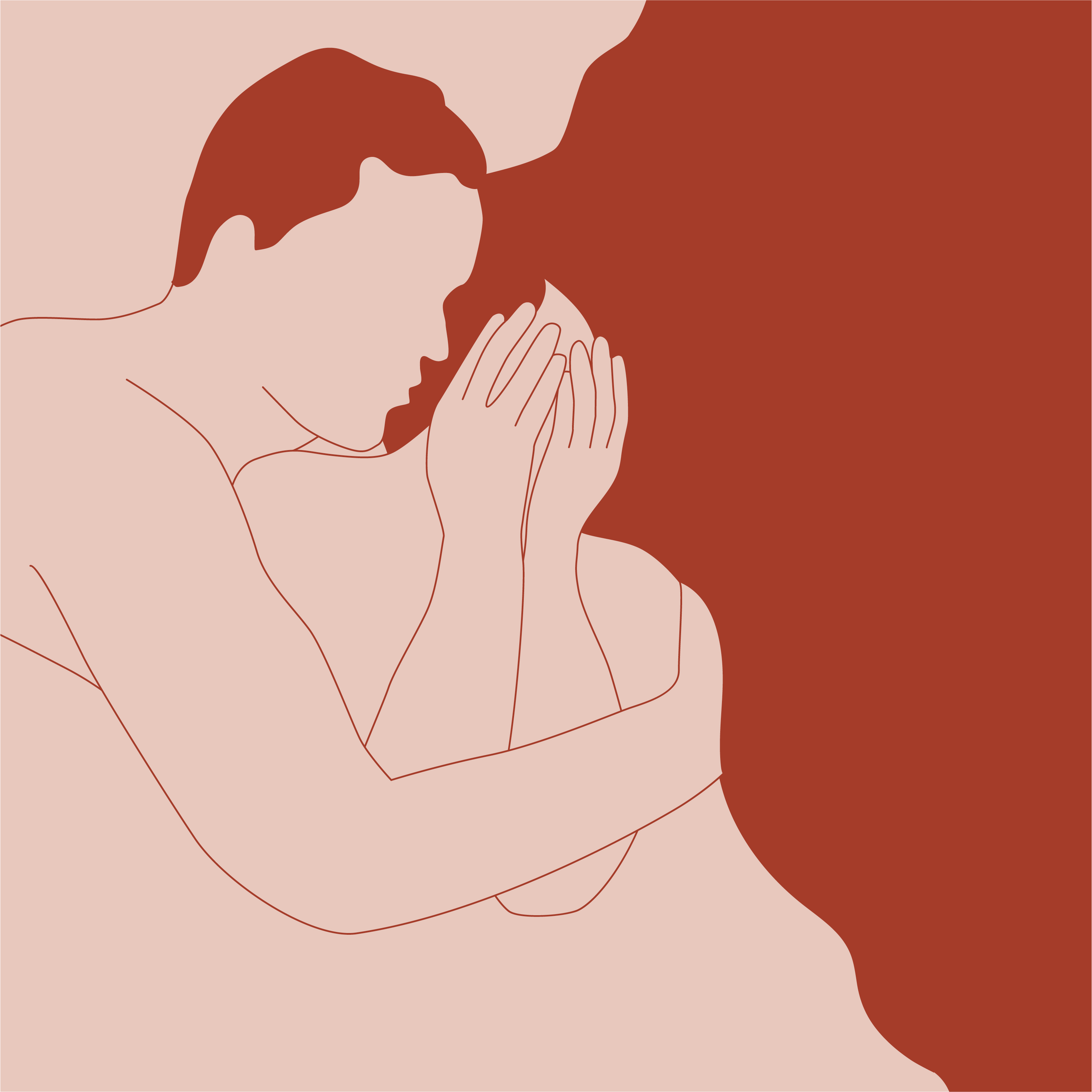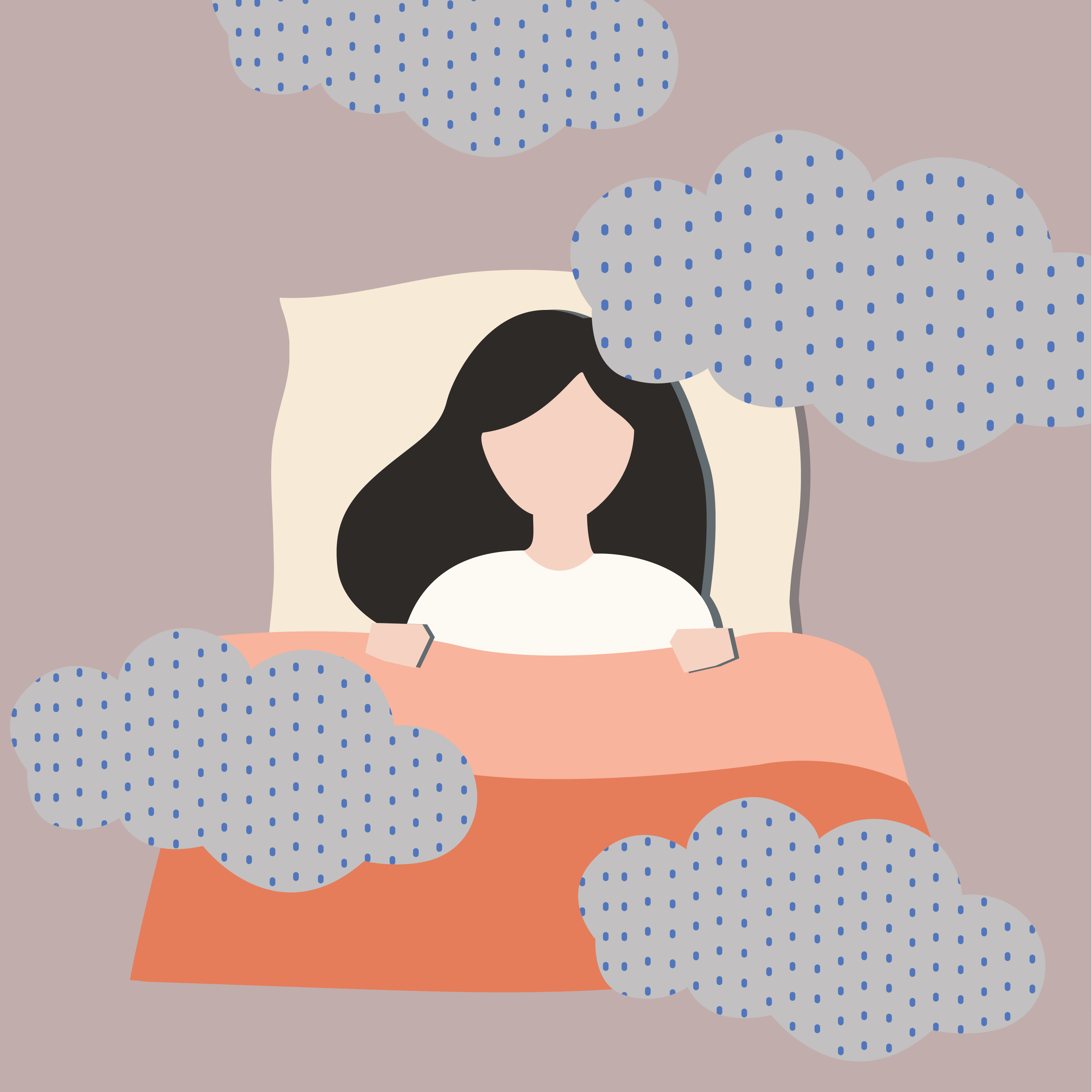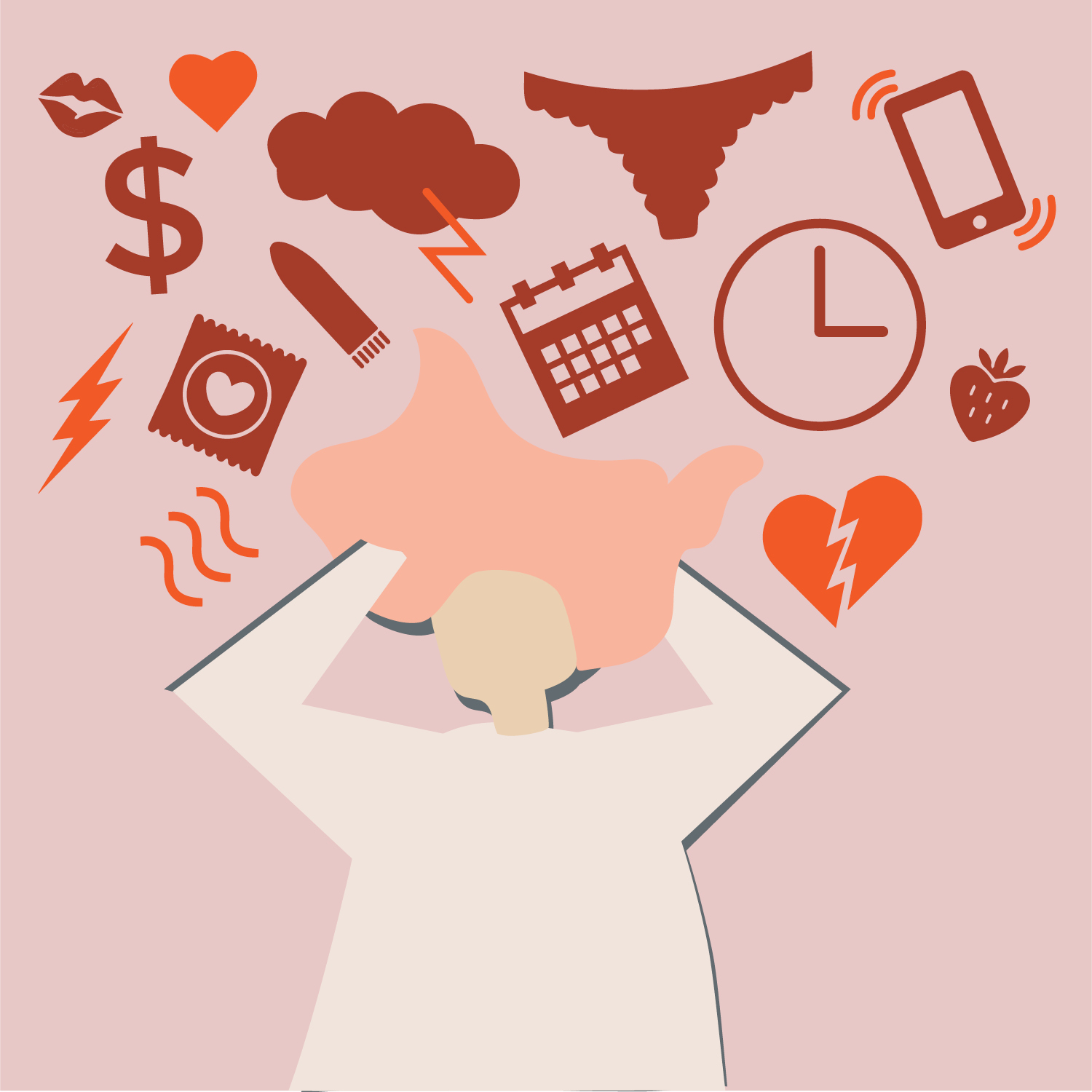Sep 27, 2021
DO I HAVE PCOS?
Polycystic ovary syndrome (PCOS) is a common health condition that affects around 1 in 10 women. It can impact everything from your menstrual cycle to your appearance. As part of Polycystic Ovary Syndrome Awareness Month, we chatted to Melbourne-based doctor Alexandra Baum about some of the symptoms, causes and treatments for PCOS and where to get support.
How would you know if you had PCOS?
You may have irregular periods due to less frequent ovulation — some women may experience no periods at all. Other symptoms such as excess face or body hair, acne and hair loss are the result of excess testosterone.
It’s important to remember that these signs and symptoms are on a spectrum and not everyone with PCOS will experience all of them.
What Causes PCOS?
We don’t know exactly what causes it but genetics and family history seem to play a role. The symptoms however, are related to abnormal hormone levels. Women diagnosed with PCOS will have higher testosterone levels than others, which drives things like excess body hair and acne. About 85% of women with PCOS will also have ‘insulin resistance’, meaning the body’s ability to respond to insulin, a hormone which controls the level of glucose in the blood, is reduced. To manage this, our bodies produce more insulin, which can lead to irregular periods, weight gain, issues with fertility, and excess androgens, like testosterone, are produced by the ovaries.
Who is likely to experience PCOS?
PCOS can affect a wide variety of women, but there are certain factors and pre-existing medical conditions that can increase the risk of developing PCOS. These include obesity, diabetes (type 1, 2 or gestational diabetes) or having a family history of PCOS. Girls who go through ‘adrenarche’ early, a hormone surge that occurs before puberty that results in the development of pubic hair, body hair and body odour also show increased prevalence of PCOS. Women with PCOS are 50% more likely to have an immediate female relative with the condition, and Indigenous women are also in a higher risk category.
How is PCOS diagnosed?
Most doctors use the Rotterdam criteria to diagnose PCOS. This requires two of three features to be present in a woman to diagnose her with PCOS — the presence of polycystic ovaries (seen on ultrasound), oligomenorrhoea or anovulation – in other words irregular periods or cycles where ovulation does not occur, and evidence of hyperandrogenism either through blood tests that show elevated androgens (testosterone, FAI), or through signs and symptoms such as excess hair growth, acne, weight gain, and less commonly male pattern baldness. So, if a woman has polycystic ovaries on an ultrasound scan and is having irregular periods due to not ovulating then she may be diagnosed with PCOS. However, even if a woman does not have polycystic ovaries on an ultrasound but has symptoms of PCOS and irregular periods, then she can still be diagnosed with PCOS.
How is PCOS treated?
PCOS is a diverse, chronic condition and treatment needs to be woman-centred. Gynaecological treatment is aimed at managing the symptoms that each individual experiences. Target areas for managing the condition include lifestyle, weight management, hyperandrogenism (acne, excess body hair), menstrual cycle regulation, fertility, and mental and emotional health.
Encouraging healthy eating and regular physical activity in order to maintain or achieve a healthy weight can help to optimise the hormone profile and improve symptoms. Women may be referred to dietitians and exercise physiologists by their doctor to support them to make necessary lifestyle changes.
Managing acne, excess body hair and alopecia is important too as these problems can be very distressing for women and impact their self-esteem. Cosmetic treatments to treat excess hair growth such as waxing, laser hair removal and depilatory creams remain the mainstay.
We can also use the combined oral contraceptive pill to treat a number of the clinical features of PCOS including hyperandrogenism and menstrual irregularity, by establishing withdrawal bleeds and reducing the risk of endometrial cancer. The pill, however, does not address the underlying drivers of PCOS, or improve insulin resistance. Your doctor may also recommend metformin, which has been shown to re-establish menstrual cycles and reduce insulin resistance.
While PCOS may limit fertility, weight loss of 5-10% can help to establish menstrual cycle control and improve fertility. Your doctor may refer you to a fertility specialist if you require medications to help you ovulate, or if you are having difficulty conceiving after 6-12 months depending on your age.
Anxiety and depression are highly prevalent in women with PCOS, so screening for these conditions and formulating a mental health care plan is important.
What is the difference between PCOS and endometriosis?
PCOS and endometriosis (endo) are very different conditions and while both can result in difficulty falling pregnant, they do this in very different ways.
Endo is a condition where cells of the endometrium, the lining of the uterus, grow outside the uterus causing inflammation and often pain. Endo can make it more difficult to fall pregnant as inflammation may cause scar tissue to form that damages the ovaries and fallopian tubes. PCOS on the other hand is a condition driven by abnormal hormone levels, specifically too many androgens and insulin resistance, which interferes with normal functioning of the ovaries, the ability to ovulate and thus fall pregnant.
How does PCOS affect the menstrual cycle?
To understand how PCOS affects the menstrual cycle, it’s important to understand how hormones interact in a “normal” menstrual cycle.
Women with PCOS have higher levels of lutenising hormone (LH) relative to follicle-stimulating hormone (FSH) meaning that multiple small follicles develop in the ovary, but they do not grow large enough to trigger ovulation. Oestrogen, progesterone, LH and FSH levels are imbalanced and this can result in irregular periods and cycles where women do not ovulate. High LH levels also stimulate the ovaries and the adrenal glands to produce androgens like testosterone, which contribute to symptoms of the disease like acne, excess face and body hair, and scalp hair loss. This effect is two-fold as we know insulin resistance occurs in PCOS. The body’s response to insulin resistance is to make more insulin, however insulin also promotes androgen production in the ovaries and adrenal glands!
Does PCOS increase chances of miscarriage and contribute to fertility issues?
Many things can affect fertility including age and being overweight, obese or underweight. Women with PCOS may not ovulate regularly giving them fewer opportunities to fall pregnant so having PCOS may limit your fertility but importantly, this is also very treatable.
Overall, women with PCOS have similar family sizes when compared to women without PCOS, but they may need some help to achieve this. However, the rate of miscarriage in women with PCOS is higher when compared to the general obstetric population. We don’t fully understand why this is the case, but it is thought that the sex hormone abnormalities in women with PCOS impact ovulation, cause the lining of the uterus to be less receptive to a pregnancy, and may disturb the function of many other important growth factors that help continue a pregnancy.
In what ways can it affect a woman’s health and lifestyle?
PCOS can affect both slim and overweight or obese women. Importantly, PCOS is a risk factor for being overweight or obese and being above a healthy weight exacerbates the insulin resistance that is thought to drive the development of PCOS, as well as the symptoms. Healthy, nutritious food and regular physical exercise can not only help to treat the symptoms of PCOS, but also the syndrome itself. It’s also important in preventing the potential longer-term health consequences of the condition, including earlier onset gestational, pre-diabetes and diabetes.
Where can women with PCOS go for support?
- Your GP: They can provide information and support and refer you to other support services including specialists, psychologists, patient support groups
- Online resources: The Jean Hailes For Women’s Health website contains easy-to-understand and patient-friendly information on a range of women’s health issues, including PCOS.
- A psychologist or counsellor: Women with PCOS may experience symptoms of anxiety and depression so it’s important to look after your mental health as well.
Dr Alexandra Baum is a junior doctor working in women’s health at Joan Kirner Womens & Childrens Hospital in Melbourne and is undertaking DRANZCOG training. This information is for educational purposes and should not be taken as personal health advice — talk to your GP if you have specific concerns related to PCOS.
Blogs

Jun 08, 2022
EXPLORING PERIOD CARE IN CULTURES AROUND THE WORLD
Our TOM Talks panelist Sabina McKenna explores how different cultures around the world approach period care.
Read More
Jun 08, 2022
STOP APOLOGISING FOR HAVING YOUR PERIOD
Our TOM Talks panelist Mel Mason talks about the importance of not apologising for having your period.
Read More
Jun 07, 2022
STRESSED? NOT SLEEPING? TRYING TO CONCEIVE?
TOM Talk's panelist Georgia Hartmann discussed the links between stress, sleep and fertility.
Read More
Jun 07, 2022
STRESS AND HOW IT AFFECTS YOUR SEX DRIVE
Certified sex coach Georgia Grace is here to unpack the link between stress and sex.
Read MoreProducts